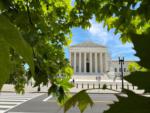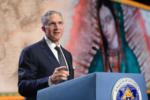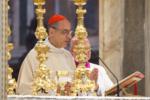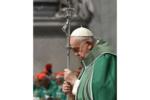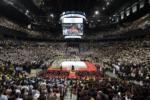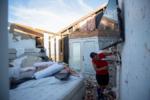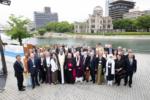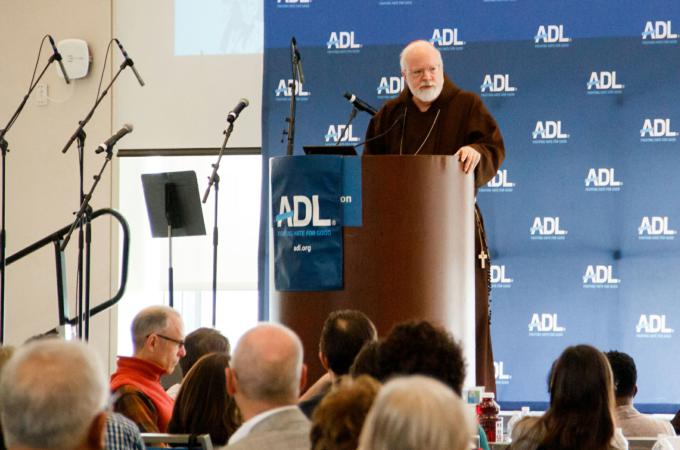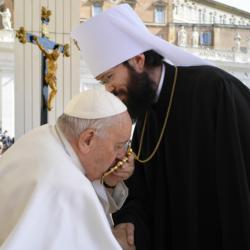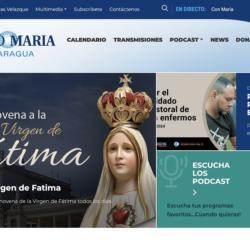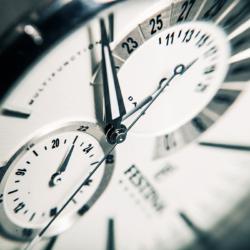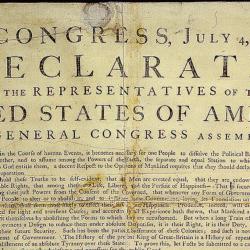ADL Seder celebrates contributions of immigrants
BOSTON -- The Anti-Defamation League has been holding its "Nation of Immigrants" Community Seder each year for over a decade. But as Cardinal Seán O'Malley addressed the guests at the ADL's 12th annual Seder, held on March 24 at the UMass Boston Campus Center, he noted that such a celebration is particularly important now, "at a time when immigrants are being demonized."
Robert Trestan, ADL New England regional director, opened the event by speaking about the values immigrants and their families strive for, chiefly freedom, justice, and equality.
"This week I was reminded that not everyone shares these values," he said, referring to the desecration of an Orthodox Jewish cemetery in Fall River a week earlier. Some tombstones were knocked over while others were covered with anti-Semitic messages.
Trestan said that when he visited the cemetery, he realized many of those buried had come to the U.S. as immigrants. Many had fought in America's wars, defending "the values we celebrate today."
Cardinal O'Malley delivered opening remarks, recalling his 20 years working with immigrants at the Spanish Catholic Center in Washington, D.C., which showed him "how difficult it is to be an immigrant, to be a stranger in a strange land, and experience countless humiliations and deprivations as one struggles to make enough money to feed one's children."
He spoke of the services the Catholic Church has provided to immigrants, the influence immigrants have had on the Church, and the "wonderful interfaith relations" the Church has enjoyed with the Jewish community.
He compared the Jewish concept of "tikkun olam," repairing the world, to the Christian concept of the social gospel, "building a civilization of love."
"Illiteracy, hunger, war, must be eliminated, but these goals will be achieved only if we're working together, those of us longstanding in the community and our newly arrived brothers and sisters," he said.
Rabbi Claudia Kreiman, incoming senior rabbi at Temple Beth Zion in Brookline, served as the Seder officiant. Rabbi Kreiman grew up in Santiago, Chile, and moved to Israel in 1996. Her mother was killed in the 1994 bombing of Asociacion Mutual Israelita Argentina, a Jewish community center in Buenos Aires.
Over the course of the afternoon, Rabbi Kreiman led the attendees through the steps of the ceremony, which involves eating foods that symbolize parts of the story of the Passover and Exodus.
She asked the attendees to make a promise for each of the four cups of wine or grape juice drunk in the meal: "I will welcome you; I will stand up for you; I will advocate with you; I will be a role model."
Rabbi Kreiman pointed out that many aspects of the Passover celebration are meant to engage children, to keep them "awake to the reality" of the story.
At the point in the ceremony when the youngest child is supposed to ask, "Why is this night different from other nights?" Rabbi Kreiman invited attendees to stand and pose the question in their native language.
About halfway through the event, singer Veronica Robles led Boston's first all-female mariachi band in providing music.
In between the steps of the Seder ceremony, three immigrants shared their stories of coming to the United States.
The first was Esther Karinge, who came to the U.S. from Kenya in 1994. She talked about the challenges she faced in applying for asylum while caring for her son, Nicholas, who was born with cerebral palsy. She volunteered and later found work helping other immigrant women file immigration papers.
"Because I went through all those things I was trying to teach other women how to not go through them," Esther Karinge said.
It took Esther Karinge 24 years to be granted asylum. She is a teacher's aide in Medford Public Schools and board member of the Immigrant Learning Center. Nicholas Karinge, who was present at the event, attends Gordon College and wants to be a preacher.
Elias Rosenfeld, an activist and student at Brandeis University, shared his story of coming to the U.S. from Venezuela with his mother and sister when he was six years old. His mother had a work visa, but she died before she could obtain citizenship. Rosenfeld said that there is no mechanism in the current immigration system for a child to retain their immigration status when a parent passes away.
DACA allowed Rosenfeld and 800,000 other immigrants to apply for work authorization. But, he said, during his first year at Brandeis, DACA was revoked, putting all his hard work and future hopes at risk. He encouraged everyone to advocate for immigrants not only at the federal level but also locally.
The final speaker was a young man named Alfredo, who was identified only as a student at a private university in Boston because he is currently undocumented. His parents immigrated before him, and he described the joy of reuniting with them in this country when he was 12 years old, after years of separation. He also spoke of the fear, discrimination, and challenges undocumented immigrants experience. He is set to graduate early with a bachelor's degree in political science and global studies.
"Today's Seder represents the true meaning of what American values are," he said.
Melissa Garlick, ADL civil rights national counsel, explained what attendees could do to support and advocate for immigrants. She and Trestan encouraged them to fill out postcards provided at each table, asking their legislators to support bills intended to protect and improve the lives of immigrants in Massachusetts.
"As this administration continues to dehumanize and attack immigrants, our commonwealth has to set an example and finally move forward with common sense protections for immigrants and measures to break down bias," Garlick said.



